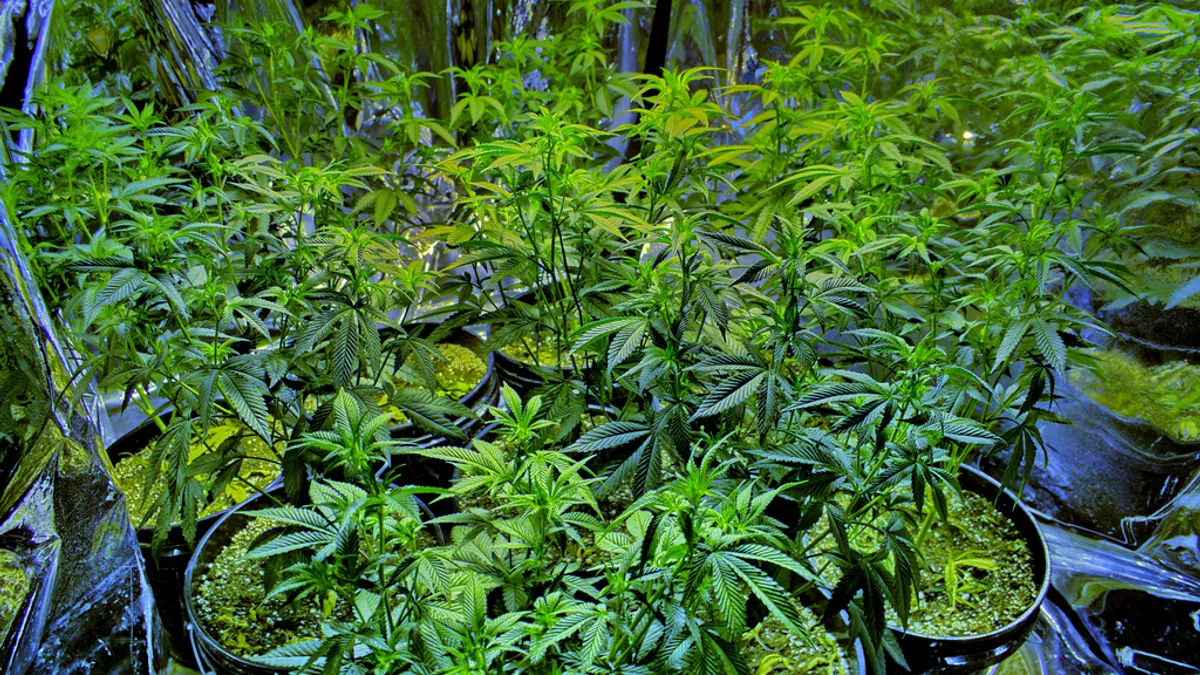Dive Brief:
- For companies in the industry, especially those operating in multiple states, cannabis regulations need to be addressed. According to Jordan Schwartz, a partner at law firm Conn Maciel Carey, the drug can present a host of employment challenges. Companies should take extra caution when an applicant or employee has a certified medial card in order to avoid discrimination claims. "That is by far the most significant legal risk," he said this week at SWANApalooza.
- However, that doesn't mean companies can't test, especially for safety-sensitive or Department of Transportation (DOT)-regulated positions. Tony Cardamone, vice president of sales and marketing with Concorde, said the good news is initial test results among drivers show less than a 1% increase in usage. Non-DOT workers have shown upward of a 2.8% increase.
- All of this may create human resources headaches, but also presents a business opportunity. Rich Thompson, senior manager of environmental compliance for Republic Services, described how his company developed handling procedures and why they classify the drug as a special waste. "It's another commercial opportunity for us to pick up the waste," he said. "It's no different than any other new development in any of the places that we serve."
Dive Insight:
Colorado's place in history as an early adopter of legalized recreational marijuana made Denver a prime setting to have this pressing conversation around both its labor and business considerations. With the drug now legal for medicinal or recreational use in 30 states and counting (plus Washington, D.C.), and with the potential for more to join that list soon, companies can't afford to avoid the discussion.
From a labor standpoint, this has already led to multiple high profile discrimination cases involving drug use and testing. Schwartz gave two examples of courts siding in the favor of employees in Massachusetts and Rhode Island, as well as another where the company won out in Colorado.
This uncertainty creates a shifting landscape for employees that aren't in safety-sensitive positions and raises the question of how much risk companies are willing to take on. Prospective hires that partake, either recreationally or medically, could choose to go elsewhere unless companies are willing to show some leniency about off-hour activities — or raise wages high enough to make abstaining worthwhile.
"Low unemployment and increasing use of drugs are narrowing the pool of qualified workers in many regions and many industries," said Schwartz.
For employees in sensitive positions — especially drivers — a no-tolerance culture is already in place, but companies still have to be savvy about evolutions in testing methods and protocols. Cardamone said urine testing remains the federally approved method, though oral testing could come within the next few years.
On the business side, Republic's experiences will become increasingly relevant around the country. Thompson said the company was involved in Colorado's regulatory process, which has since become a model for other states. Denver has its own environmental regulations for cannabis that cite the state language.
Primary takeaways include the need to separate plant material from packaging and render it "unusable and unrecognizable," often by shredding or grinding. From there, material is often mixed with municipal solid waste. Composting or other organic processing is an option depending on customer preference.
As the cannabis industry begins to face more pressure around sustainability — especially energy and water use — this has begun to translate into waste innovations too. Micron Waste Technologies recently announced plans to design an aerobic digestion and treatment system for major manufacturer Aurora Cannabis. Aurora is one of the largest cannabis companies in Canada and hopes to soon become the second publicly traded one on the U.S. stock exchange.















